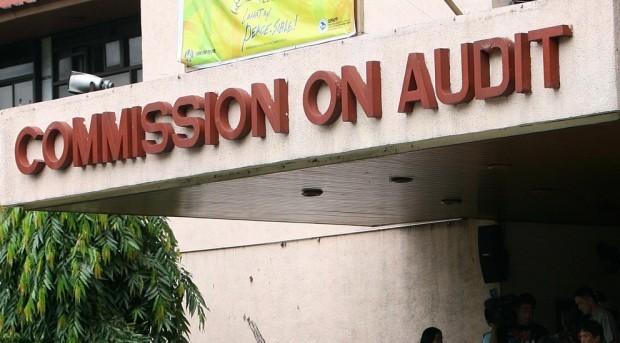COA finds DOH lacking in managing P67.32-B COVID funds

Commission on Audit office. INQUIRER FILE PHOTO
MANILA, Philippines — The Commission on Audit (COA) found deficiencies on how the Department of Health (DOH) managed its P67.32-billion fund to fight the COVID-19 pandemic, adding that it contributed to challenges that the country faced during the crisis.
COA’s annual audit report for DOH in 2020 revealed that the deficiencies are caused by non-compliance with pertinent laws and regulations, which led to missed opportunities for the department primarily tasked with managing the pandemic.
These issues, COA said, cast doubt on the regularity of transactions, while keeping much-needed funds at bay and unspent.
“More importantly, the billions of pesos in the coffers of the DOH that have remained not obligated and disbursed at year-end is counter-beneficial to the Department’s continuing efforts towards controlling the spread of COVID-19 through the provision of quality health service,” COA said in its report released on Wednesday.
“It can, thus, be said that these funds that remained idle as at year-end were not translated to much-needed health supplies, equipment and services that could have benefited both the health workers and the general public during the critical times of the pandemic,” it added.
Article continues after this advertisementCOA made a list of recommendations to Health Secretary Francisco Duque III, which should be implemented to avoid similar issues in the future.
Article continues after this advertisementThe recommendations centered on reminding and directing unit heads to act urgently in utilizing funds allocated to fight the COVID-19 pandemic, while instructing the administration and financial team to closely coordinate and “conduct regular/periodic assessment” on the utilization of COVID-19 funds.
Similarly, Duque was urged to direct DOH officers and officials to hasten the procurement process “through proper planning, supervision and monitoring of scheduled activities.” This, while reminding the heads of various operating units “to comply strictly with existing procurement laws, rules and regulations through the issuance of a Department Memorandum.”
Duque was also asked to conduct investigations on irregularities with the COVID-19 funds.
“We recommended that the Secretary of Health: a) Require the concerned operating units to submit written explanations on the deficiencies noted, evaluate the same and implement corrective actions when deemed necessary; b) Remind program directors and heads of operating units to, henceforth, conduct proper procurement planning and consider all factors in the use of medical equipment prior to actual purchase,” COA noted.
Other similar recommendations were made by COA on the following issues:
- lapses in the handling of petty cash fund
- management of fund transfers
- implementation of financial assistance programs
- payment of COVID-19 allowances
- unauthorized grant of meal allowances
- incomplete documentation for death and sickness compensation
- failure to prepare required documentation for COVID-19 related donations
- lapses in the management of IRM funds
The common trend within COA’s recommendations is to direct concerned attached-agencies to provide documentation to address the deficiencies and issues, while asking them to explain why such issues surfaced.
It could be remembered that DOH faced a myriad of issues in terms of funding early into the pandemic, when corruption issues within the Philippine Health Insurance Corporation (PhilHealth) was revealed by a former anti-corruption officer.
During a Senate investigation, it was also revealed that PhilHealth made around P14 billion worth of interim reimbursement mechanism (IRM) payments to healthcare institutions that are not handling COVID-19 cases, like dialysis centers and maternity clinics.
The IRM is a system created to fund fortuitous events or unforeseen events.
RELATED STORIES:
Lacson: PhilHealth’s over P14B IRM payments mean 600 plus counts of malversation
Rectifying not enough, PhilHealth officials must be held criminally liable – Lacson
JPV
For more news about the novel coronavirus click here.
What you need to know about Coronavirus.
For more information on COVID-19, call the DOH Hotline: (02) 86517800 local 1149/1150.
The Inquirer Foundation supports our healthcare frontliners and is still accepting cash donations to be deposited at Banco de Oro (BDO) current account #007960018860 or donate through PayMaya using this link.